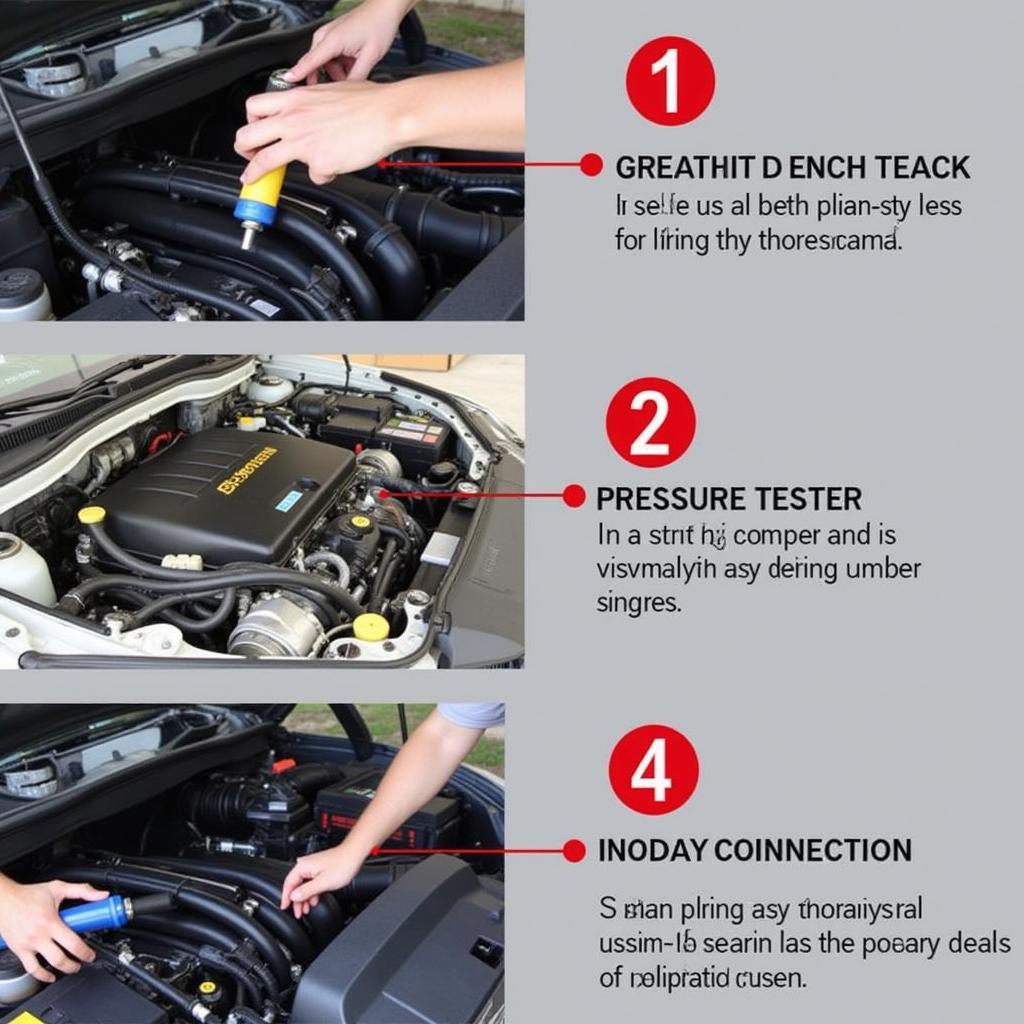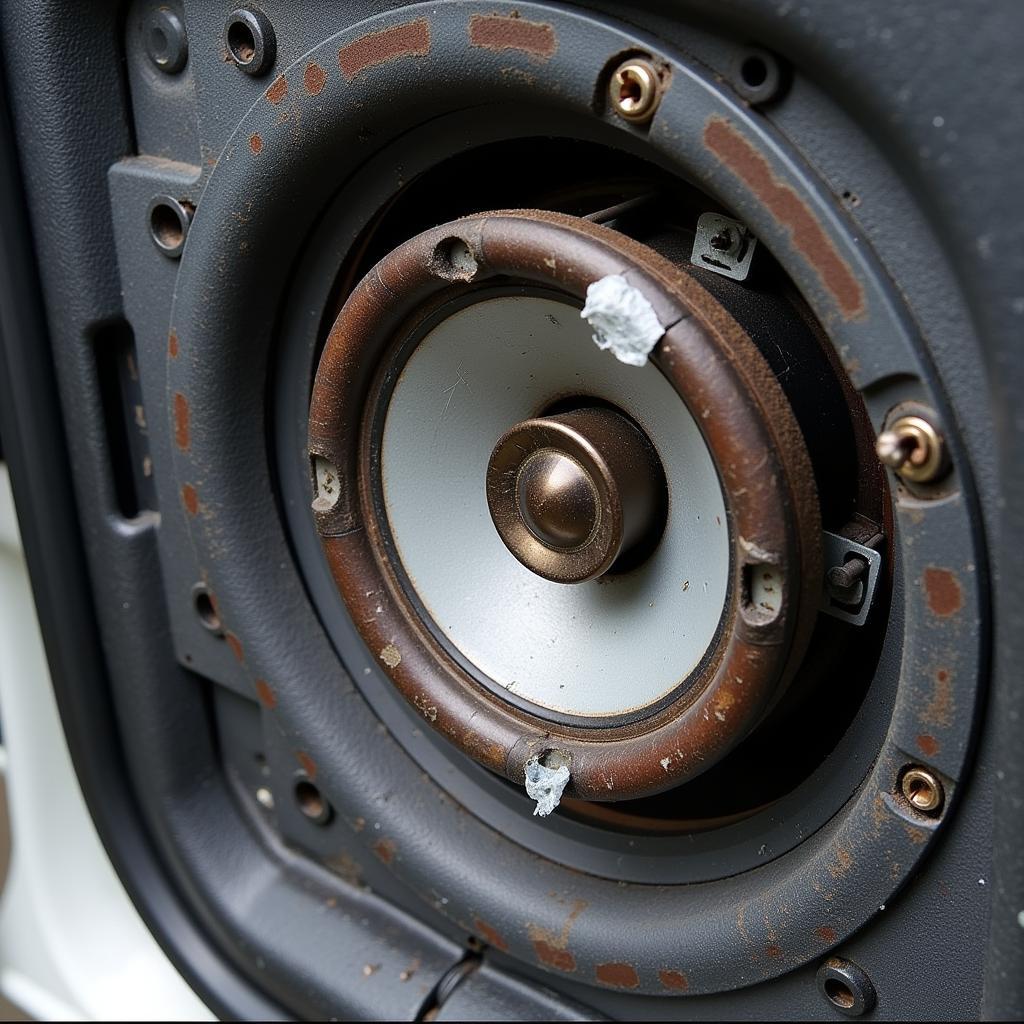Experiencing a strange Smell After Car Maintenance? Don’t panic! This is a surprisingly common issue, and often there’s a simple explanation. This article explores the various reasons why your car might have a peculiar smell after maintenance, offering troubleshooting tips and solutions to help you identify and resolve the problem.
Common Causes of Smell After Car Maintenance
Several factors can contribute to unusual smells after your car has been serviced. These range from relatively harmless to potentially serious issues, so it’s important to identify the source of the smell quickly.
- Spilled Fluids: During maintenance, fluids like oil, coolant, or transmission fluid can sometimes spill onto hot engine components. This can cause a burning smell that dissipates after a short drive.
- New Parts: Some new parts, particularly brakes and clutches, have a distinct smell when first used. This “new car smell” is usually temporary and nothing to worry about.
- Forgotten Items: Mechanics occasionally leave rags or packaging materials near the engine, which can burn and produce a smell.
- Incorrectly Installed Parts: If parts are installed incorrectly, they can leak or overheat, leading to various smells. For example, a loose oil filter can cause an oil leak and a burning smell.
- Overfilled Fluids: Overfilling engine oil or other fluids can lead to leaks and unpleasant smells.
- Chemical Reactions: Certain cleaning products or chemicals used during maintenance can react with existing residues or materials in your car, producing an unusual smell.
Identifying the Specific Smell
Identifying the specific type of smell can help pinpoint the cause. Here’s a breakdown of common smells and their potential origins:
Burning Smell
- Oil: A burning oil smell usually indicates an oil leak. Check for leaks around the oil filter, oil pan, and valve cover gaskets.
- Rubber: A burning rubber smell might indicate a problem with belts, hoses, or seals rubbing against hot engine components.
- Plastic: A burning plastic smell could be caused by a melted wire harness, a plastic bag near the exhaust manifold, or a damaged plastic component.
Sweet Smell
A sweet smell often suggests a coolant leak. Look for leaks around the radiator, hoses, water pump, and heater core.
Sulfur or Rotten Egg Smell
This pungent smell usually indicates a problem with the catalytic converter or a faulty oxygen sensor.
Chemical Smell
A strong chemical smell could be due to spilled cleaning products or chemicals used during maintenance. Ensure all chemicals have been properly cleaned up.
 Coolant Leak Detection
Coolant Leak Detection
Troubleshooting Steps for Smell After Car Maintenance
- Check for Visible Leaks: Inspect the engine compartment for any signs of fluid leaks. Look for wet spots, drips, or puddles.
- Inspect New Parts: If new parts were installed, ensure they are correctly fitted and not leaking or rubbing against other components.
- Check Fluid Levels: Verify that all fluid levels are correct. Overfilled fluids can cause leaks and smells.
- Sniff Around: Try to pinpoint the location of the smell. This can help narrow down the potential causes.
- Check for Forgotten Items: Look for any rags, tools, or packaging materials that might have been left behind.
When to Seek Professional Help
If you can’t identify the source of the smell or if the smell persists after taking the troubleshooting steps, it’s essential to consult a qualified mechanic. Ignoring a persistent smell could lead to further damage and costly repairs.
“A lingering smell after maintenance isn’t normal. It’s always better to be safe than sorry and have a professional diagnose the issue,” says Michael Davis, a certified automotive technician with over 20 years of experience.
Preventing Smells After Car Maintenance
- Choose a Reputable Mechanic: A qualified and experienced mechanic is less likely to make mistakes that can lead to smells.
- Communicate Clearly: Clearly explain any unusual smells you’ve noticed before the maintenance is performed.
- Inspect the Work: After the maintenance is complete, take a few minutes to inspect the work and look for any obvious issues.
Conclusion
A smell after car maintenance can be concerning, but it’s often a minor issue with a straightforward solution. By following the troubleshooting steps outlined in this article, you can identify the source of the smell and take appropriate action. If you’re unsure about anything, don’t hesitate to contact a qualified mechanic. For expert advice or assistance, connect with AutoTipPro at +1 (641) 206-8880 or visit our office at 500 N St Mary’s St, San Antonio, TX 78205, United States.
FAQ
- Is a slight burning smell normal after an oil change? A slight burning smell can be normal for a short period after an oil change, especially if some oil spilled onto hot engine components. However, a persistent burning smell should be investigated.
- What does a sweet smell after car maintenance indicate? A sweet smell typically indicates a coolant leak.
- Why does my car smell like rotten eggs after maintenance? A rotten egg smell often suggests a problem with the catalytic converter or oxygen sensor.
- Should I drive my car if it smells unusual after maintenance? If the smell is strong or persistent, it’s best to avoid driving and consult a mechanic.
- How can I prevent smells after car maintenance? Choose a reputable mechanic, communicate clearly about any existing smells, and inspect the work after the maintenance is complete.
- What should I do if I can’t find the source of the smell? Consult a qualified mechanic for diagnosis and repair.
- Can overfilled fluids cause smells? Yes, overfilled fluids can leak and produce unpleasant smells.





Leave a Reply